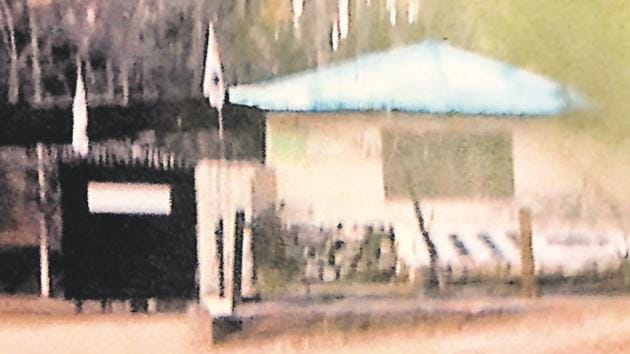Balakot highlighted lowering of India’s threshold on terror
In many ways, the Balakot strike shares features with the 1965 India-Pakistan war. Many in the international community saw our response as a dangerous escalation of a localised conflict over Kashmir to the full spectrum of an India-Pakistan war.
As the terrorist attack on the Central Reserve Police Force (CRPF) convoy in Pulwama marks its first anniversary, the question arises of situating it and the counter-measures that followed in the wider context of relations with Pakistan over the past two decades.

While terrorism has been a central feature of the relationship, our responses to it have varied. The response to the Parliament attack in December 2001 was a major military mobilization. The Mumbai attacks of November 2008 resulted in a diplomatic push for international pressure on Pakistan. In between variants such as the Joint Anti Terror Mechanism were put in place.
The cross-Line of Control (LoC) surgical strikes following the Uri terror attach in September 2016 marked a new phase in responses. The Balakot strike after Pulwama was more than an evolutionary response – principally because the target was not along the LoC and not in Pakistan-Occupied Kashmir. The message was that our response to terrorism would not be constrained by past practices or be within the narrative confines of Pakistan’s perceptions of Kashmir.

In many ways, the Balakot strike shares features with the 1965 India-Pakistan war. Pakistan had launched Operation Gibraltar in August 1965 – a bid to use large numbers of infiltrators to create a civic breakdown in J&K in a prelude to military intervention. India’s response was not confined to J&K and extended across the international border. Many in the international community saw our response as a dangerous escalation of a localised conflict over Kashmir to the full spectrum of an India-Pakistan war. In Pakistan, our military response was seen then, as it is seen now, as unprovoked Indian aggression. Thus, September 5 since 1965 has remained a permanent fixture of Pakistan’s political calendar as Defence of Pakistan Day. The point is that Pakistan’s own reading of subcontinental history imparts to it the sense of entitlement that all its actions on Kashmir are legitimate and insulated from all other aspects of India-Pakistan relations.
This sense of entitlement needed to be checked and the Balakot action in response to the terrorist attack in Pulwama did so. The withdrawal of most favoured nation (MFN) status to Pakistan post-Pulwama was largely a symbolic measure since the trade balance is in India’s favour by a factor of 4 or 5. Yet, it conveyed the same strategic message – responses to terrorist provocations would not be localised but would affect the entire spectrum of bilateral relations.
A significant lowering of India’s threshold to terrorist attacks is what the aftermath of Pulwama thus represents in strategic terms. This lowering has not taken place overnight. In the preceding two decades, every government, regardless of its political colour, has sincerely sought to de-securitize a deeply troubled bilateral relationship with Pakistan. Acts of terrorism have been the one factor disrupting each attempt.
After Pulwama and Balakot, other events came to the centre of the India-Pakistan radar screen. The most significant were the legislative changes with regard to Jammu and Kashmir and Ladakh in August 2019. Quite apart from the domestic debate in India, Pakistan’s reactions are perplexing. Its intensity of condemnation against changes made in constitutional provisions with regard to the erstwhile J&K state does not fit in with a long history of seeing Article 370, J&K statehood or other provisions regarding J&K as a sham.
What explains this privileging of the erstwhile constitutional provisions now? This can be understood in terms of a sense of entitlement on J&K and Pakistan’s complex internal politics and civil and military issues. That the constitutional changes with regard to . J&K were made in the aftermath of Pulwama/Balakot and the high state of tension that existed adds further context.
On the first anniversary of the Pulwama terrorist attack, the question is how does the road ahead look with regard to India-Pakistan relations. The current position does look somewhat dire: No high commissioners in place, frequent tactical firefights along the LoC, a charged Pakistani rhetoric with regard to Jammu and Kashmir and a freeze on trade and people-to-people contacts. There is also a changing regional context that induces changes in Pakistan-US relations plus there is a near constancy in the Pakistan-China relationship. Such factors also play a role with regard to other significant external relationships of Pakistan – such as with Turkey or Malaysia.
This is not a new position by any means and in the past too efforts were made to move forward from similar situations. What is however also clear is that older processes that attempted to restore some minimal stability- the Composite Dialogue, the Resumed Dialogue and the Comprehensive Bilateral Dialogue- have run their course. As far as India is concerned, the onus remains on Pakistan to recognise the danger that terrorism poses to stability. Whether Pakistan’s internal flux will permit such recognition is the real question for the months to come and on that the jury is still out.
The future framework within which a rebuilding of relations will take place is still unclear, but its building blocks will be familiar – trade, practical cooperation measures, people-to-people contact etc. The way ahead will ultimately depends, however, largely on political initiatives and these will rely, as in the past, on practical not perfect solutions.
The author is a former High Commissioner to Pakistan and currently Director General, Indian Council of World Affairs. Views are personal.






